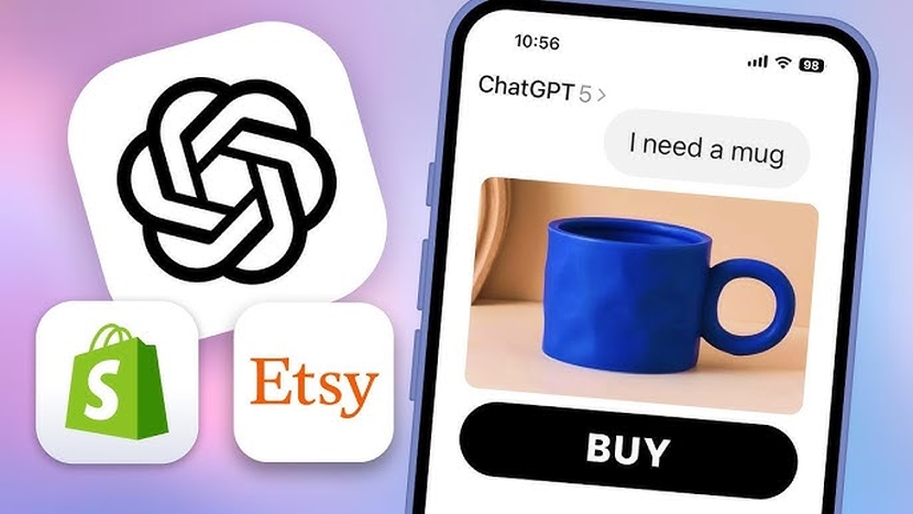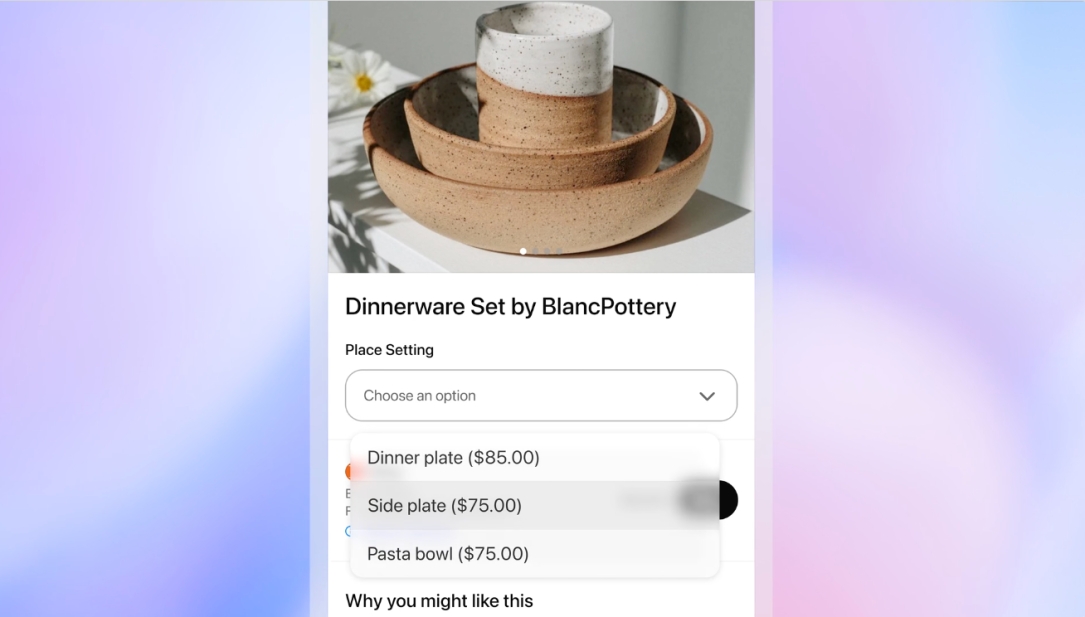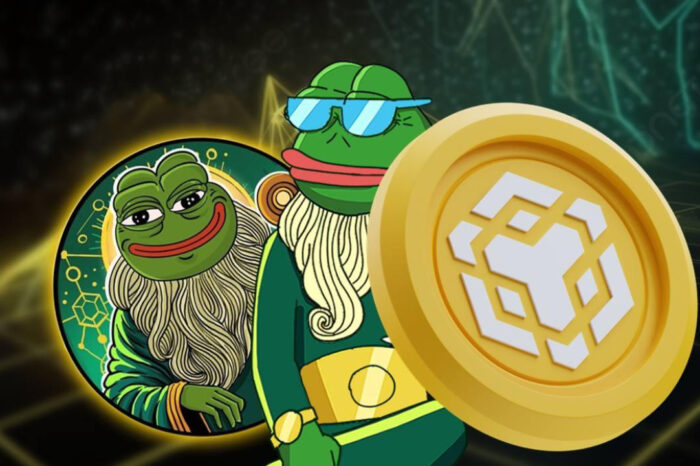You can now shop directly inside ChatGPT with Instant Checkout — It could change how we shop online

Shopping often starts with a simple question: “What’s a good gift for a pet lover?”
Until recently, that question might have led you to Google, Amazon, or a few too many open tabs. But what if you had your own personal shopper—one that could find the perfect gift and place the order for you, all in a single conversation?
Now, you can ask ChatGPT the same thing, pick a product, and complete the entire purchase without leaving the chat. OpenAI has quietly turned its chatbot into a shopping assistant, and the implications stretch far beyond a few impulse buys. This means ChatGPT users can now go from asking for gift ideas to purchasing a personalized product without ever leaving OpenAI’s platform. And as AI platforms start to replace search engines as the entry point for online discovery, this move could shake up the balance of power in e-commerce.
OpenAI Enters E-Commerce: ChatGPT Now Lets You Buy Etsy and Shopify Products In-Chat
OpenAI has rolled out “Instant Checkout,” a new feature that lets users in the U.S. buy products directly inside ChatGPT. It launched with Etsy sellers—think crochet keychains, personalized pet portraits, and handmade ceramics—and will soon expand to Shopify’s one million merchants, bringing in recognizable names like Glossier, Skims, Spanx, and Vuori. Payments are handled inside the chat through Apple Pay, Google Pay, Stripe, or credit cards, making the process feel less like browsing a website and more like texting a friend who happens to be a personal shopper.
For shoppers, it’s a frictionless experience. For OpenAI, it’s a strategic move into a market that’s been dominated for decades by Amazon and Google. The chatbot is no longer just answering questions—it’s becoming a storefront. That shift could change who controls product discovery and online shopping behavior.
OpenAI says the product recommendations are “organic and unsponsored,” meaning they’re not paid placements. The company earns a small fee from each completed purchase. Stripe, which worked with OpenAI on the agentic checkout protocol that powers the system, described it as building “the economic infrastructure for AI.” For OpenAI, those fees could become a new revenue stream. Despite having an estimated 700 million weekly active users and being valued higher than any other private company, it has yet to turn a profit, burning through billions to build and operate its models.
“More than 700 million people turn to ChatGPT each week for help with everyday tasks, including finding products they love. Starting today, we’re taking the first steps toward ChatGPT helping people buy them too—beginning with Instant Checkout, powered by the Agentic Commerce Protocol, built with Stripe,” OpenAI said in a post.
OpenAI Goes Retail With Instant Checkout, Could Disrupt Amazon and Google’s Grip on Online Shopping

Credit: OpenAI
For decades, Amazon and Google have dominated the online shopping landscape. If you wanted to buy something, you started with a search box or a homepage filled with curated deals. That familiar routine may be about to change.
Now with “Instant Checkout,” shoppers have new ways to browse and buy products without ever leaving the conversation. What began as a chatbot for answering questions is now acting as a personal shopping assistant, blurring the lines between discovery and transaction — and potentially challenging the dominance of tech’s two biggest retail gatekeepers.
Meanwhile, OpenAI isn’t alone in this space. Perplexity introduced a similar shopping feature last year, letting users make purchases without leaving the platform. Microsoft’s Copilot platform allows merchants to run storefronts directly in chat. Startups like Daydream and Deft are chasing the same opportunity, raising capital to build conversational shopping systems. Amazon, sensing the shift, launched an AI assistant of its own to keep users on its platform, while Google has AI-powered recommendations built into its Shopping tab.
For marketplaces like Etsy, the integration offers a way to reach new users who might not have discovered their shops otherwise. But it comes with tradeoffs. Sellers lose some control over how their products are curated and presented, and building long-term customer relationships becomes harder when shoppers never visit their actual store pages.
Beyond the shopping experience itself, this move positions OpenAI as a new kind of gatekeeper. Amazon and Google have long dictated what shoppers see first, often prioritizing their own products or preferred partners. If purchases start shifting inside AI chatbots, companies like OpenAI could end up holding the keys to product discovery—and the fees that come with it.
To support this new shopping layer, OpenAI is open-sourcing the Agentic Commerce Protocol (ACP), the tech behind Instant Checkout. That makes it easier for merchants and developers to integrate with ChatGPT, expanding the ecosystem and, by extension, OpenAI’s influence. Google is already working on its own protocol, dubbed Agent Payments Protocol (AP2), setting up yet another battleground between the two giants.
OpenAI says payments and fulfillment are handled by the merchants through their existing systems. ChatGPT acts as the intermediary, passing information securely between the buyer and seller. That setup may ease some concerns about entering credit card information into a chatbot, though the idea of letting ChatGPT handle transactions will still be new territory for many.
Shopping inside ChatGPT might sound like a small feature, but it signals a major shift. If search engines were the starting point of the last era of online shopping, conversational agents could define the next one. And this time, the checkout happens right where the conversation begins.




